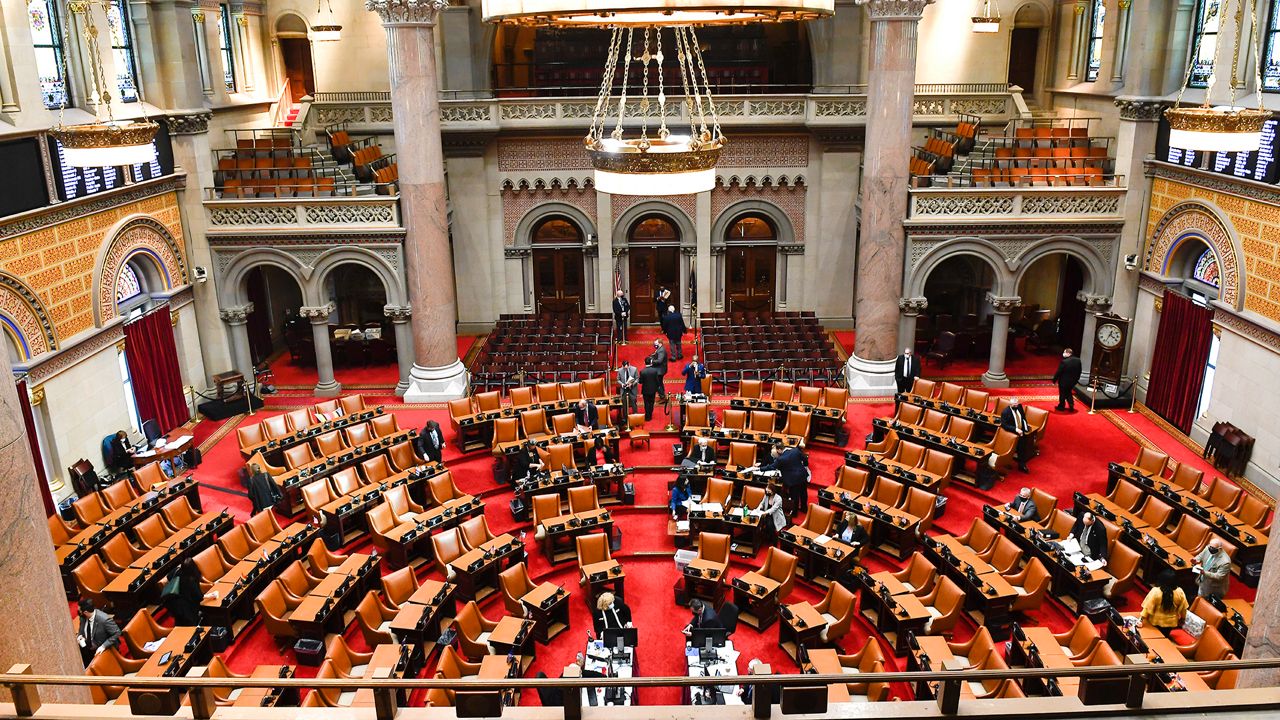The COVID-19 pandemic altered public meetings in New York, making government participation for elected officials and members of the public in an era of remote video conferencing and social distancing.
Now, as the state's emergency orders for the pandemic fall away, but concerns over rising cases and the delta variant linger, good-government organizations in New York are trying to find a way forward for conducting public meetings with both transparency and safety in mind.
The groups, led by Reinvent Albany, called on the state's main open government office this week to publish guidance on how public meetings should be conducted. How can attendance, voting, quorums and testimony by the public and elected officials be considered?
And there are questions over how public bodies at the state and local level would provide accommodations for people with disabilities.
"COVID-19 has changed the conversation about how public bodies should convene and the public’s level of access," the group wrote in the letter to the Committee on Open Government. "While it’s ideal that public bodies meet in person like before, we are sympathetic to the challenges that some officials and members of the public face gathering at a single location while coming from faraway regions. Some may also be pregnant, immunocompromised, have disabilities or be taking care of vulnerable family members, complicating in-person attendance as virus variants continue to circulate."
The state Legislature, for instance, continued to meet through the crisis, though some lawmakers appeared remotely. A meeting of the Senate Ethics Committee earlier this month was postponed and rescheduled for August amid questions over whether lawmakers could attend remotely.
"Ideally, the state will find a way to both resume in-person meetings and ensure remote access," the letter states. "It’s important that the solution requires a quorum of the government body to be present at an accessible meeting location. The Open Meetings Law strives for maximum transparency, and the end of the COVID-19 emergency must not result in diminished access for the public."



